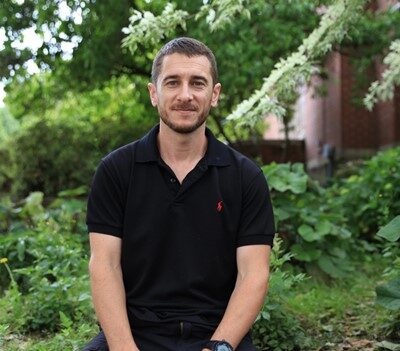Energy Humanities and the Global South
The Energy Humanities and the Global South (EHGS) research cluster supports scholarship that approaches our contemporary climate crisis through the study of energy, including carbon-based and renewable energy forms, and that promotes energy transition. It investigates the social, ideological, artistic, ecological, labor, gendered, and racialized relations that are produced by, attach to, and disrupt energy systems and infrastructures. Global South energy humanities, more specifically, seeks to understand energy from perspectives situated in the postcolonial and developing world and to facilitate processes of energy transition that are equitable and just.
For more information or to join the EHGS email distribution list, contact Carmela Garritano at cgarritano@tamu.edu.
In Spring 2025, EHGS will host presentations by energy humanities' scholars and hold meetings with members of the TAMU community interested in participating in future initiatives.
UPCOMING EVENTS
Understanding Small Hydropower in China’s Southeast Frontier, Yunnan Province
Dr. Thomas Ptak | Assistant Professor, Texas State University
Development of energy infrastructure occupies a pivotal role in shaping a range of China’s contemporary challenges. Broadly, development of large hydroelectric facilities—reflecting efforts to expand renewable energy generation and mitigate pressing environmental concerns—has increased substantially over the past two decades. Large dams provide significant amounts of power both in terms of economy and energy and, as a result, support China’s ongoing transformation. The very size of these projects should not, but largely have, obscured other developments of immense significance; small hydropower. In China, small operations, specifically facilities with an operating capacity under 50 Megawatts, have been promoted as a tool for ‘electrifying the countryside,’ spurring development and improving the quality of life for ethnic minority communities in rural and peripheral areas. Undertaken through an ethnographic study over ten years, this research critically evaluates how small-scale hydroelectric operations in a remote corner of Yunnan Province shape socioeconomic indicators, environmental concerns and the everyday life of residents in marginalized communities.

PREVIOUS EVENTS
Melt, Rise, and the Future of Water: A Climate Story
Dr. Cymene Howe | Professor of Anthropology and Founding Co-Director of the Science and Technology Studies Program at Rice University
This presentation poses an open question: how will we come to live with water as it is transformed by anthropogenic impacts? Melting ice sheets and rising seas are only two indicators of Earth's rapidly changing hydrosphere. Many more await us. As we navigate the catastrophic consequences that overflow our present conditions--in the form of floods, superstorms, and extreme rainfall--how might we simultaneously evolve new ways of engaging with our shared watery encounters?
Approaching these questions through cultural anthropology, Howe considers the unfolding connections between the melting Arctic and coastal cities facing sea level rise flowing from the (once) frozen north. Through the concept of “hydrological globalization” and “Sister Cities of the Anthropocene” I offer a set of speculative tools through which we might engage our collective watery futures as both troubling prologue and resource for creative reimagining.

Sweet Fuel: Brazilian Ethanol in Historical Perspective
Dr. Jennifer Eaglin | Associate Professor of Environmental History/Sustainability at Ohio State University
Today, Brazilian sugarcane ethanol is the most efficient biofuel on the global fuel market, and Brazil is the largest biofuel exporter in the world. Although Brazil has gained international renown for its sugarcane ethanol, few scholars have explored how it achieved this reputation. In fact, the military dictatorship that ruled Brazil from 1964-85 pioneered the ethanol boom through the National Ethanol Program, which it launched in 1975. This talk traces the Brazilian ethanol industry from its inception under state tutelage in 1933, through a state-led ethanol program (Proálcool) under the dictatorship, to the industry’s demise in 1990 and its 2003 rebirth with the launch of the flexible fuel engine that runs on any combination of ethanol and gasoline. Through her discussion of this Brazilian example, Eaglin more broadly explores the social and environmental implications of transforming sugarcane into a large-scale domestic fuel option as part of one of the most advanced alternative energy initiatives in the world.

